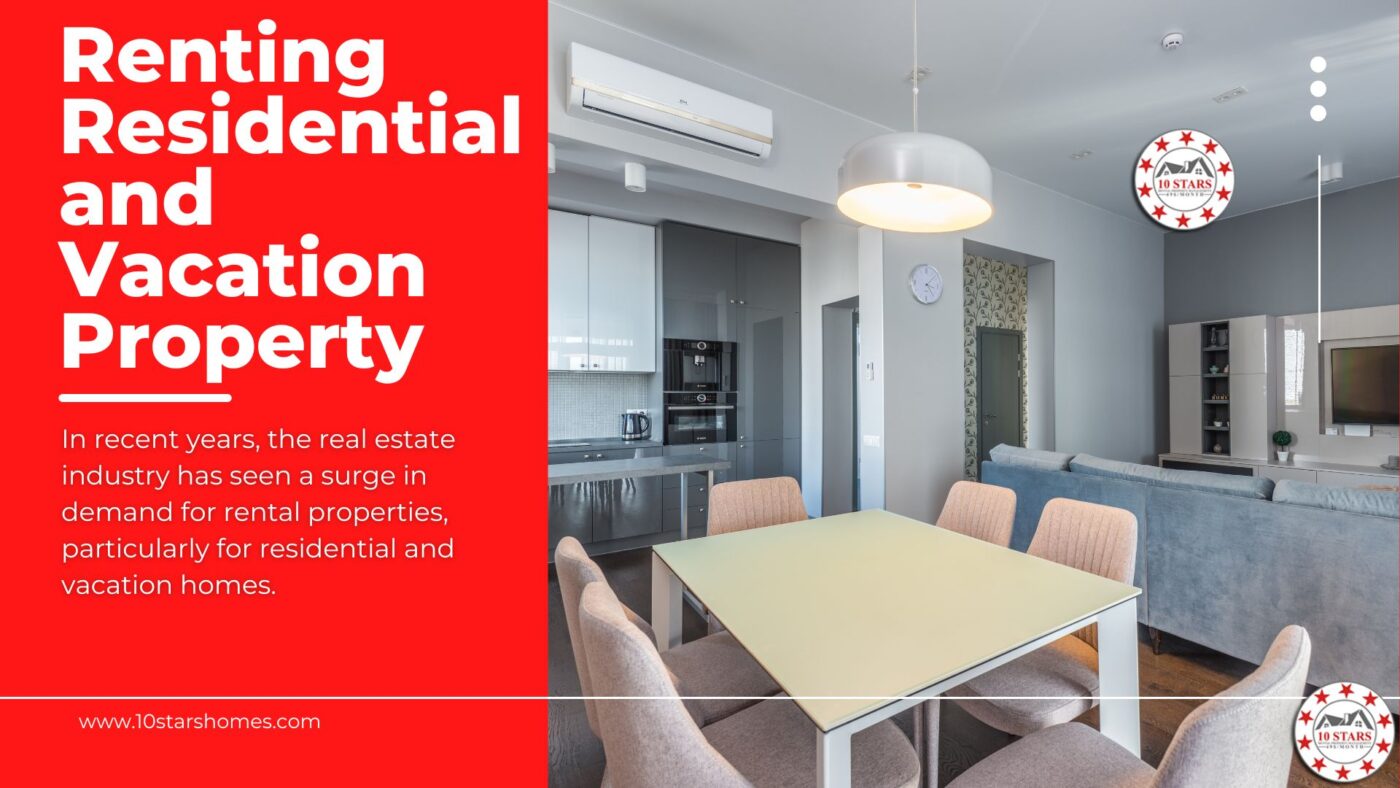In recent years, the real estate industry has seen a surge in demand for rental properties, particularly for residential and vacation homes. While renting property can be a great investment opportunity, it’s essential to understand the pros and cons involved before making a decision.
Pros of Renting Residential Properties
-
Steady Cash Flow: One of the primary benefits of renting residential property is the steady cash flow it provides. As long as the property is occupied by renters, the owner will receive a monthly rental income, which can be used to cover the mortgage, property taxes, insurance, and other expenses associated with owning a rental property.
-
Appreciation: Over time, the value of residential properties typically increases, allowing owners to sell their properties for a profit. Additionally, rental rates generally increase as well, providing a higher return on investment.
-
Tax Benefits: Rental property owners are eligible for a range of tax benefits, including deductions for mortgage interest, property taxes, and repairs. These deductions can help reduce the overall cost of owning a rental property, making it a more profitable investment.
Cons of Renting Residential Properties
-
Maintenance Costs: Owning a rental property comes with the responsibility of maintaining the property and making necessary repairs. These costs can add up quickly and can be a significant expense for property owners.
-
Tenant Issues: Dealing with tenants can also be a challenge for rental property owners. From late rent payments to damage to the property, dealing with tenants can be time-consuming and stressful.
-
Legal Responsibilities: Rental property owners are also responsible for following local, state, and federal laws regarding landlord-tenant relationships. This includes ensuring the property is up to code, providing adequate notice for rent increases, and following eviction procedures.
Pros of Renting Vacation Properties
-
High Rental Rates: Vacation properties are typically in high demand, especially during peak travel seasons, allowing owners to charge premium rental rates. This can provide a significant return on investment for property owners.
-
Personal Use: Vacation property owners can also use the property for their own personal use, which can be a great way to take a break from the daily grind and enjoy a change of scenery.
-
Potential for High Occupancy Rates: Vacation properties are often rented out for extended periods, providing a higher occupancy rate and a more consistent rental income.
Cons of Renting Vacation Properties
-
Seasonal Demand: While vacation properties can be in high demand during peak travel seasons, they may sit vacant for much of the year. This can result in lower rental income and higher expenses, making it important for property owners to budget accordingly.
-
Maintenance Costs: Like residential properties, vacation properties also come with the responsibility of maintaining the property and making necessary repairs. These costs can be even higher for vacation properties, which are often used more frequently and subjected to more wear and tear.
-
Location Dependence: Vacation properties are often located in popular tourist destinations, which can make them vulnerable to changes in the local economy or shifts in travel patterns. Property owners must be aware of these factors and adjust their rental strategies accordingly.
In conclusion, owning a rental property, whether residential or vacation, can be a great investment opportunity. However, it’s important to understand the pros and cons involved before making a decision. Property owners should weigh the potential benefits, such as steady cash flow and appreciation, against the responsibilities, such as maintenance costs and tenant issues. By considering all of these factors, property owners can make an informed decision and maximize their return on.
CONTACT US TODAY FOR A FREE MARKET ANALYSIS
